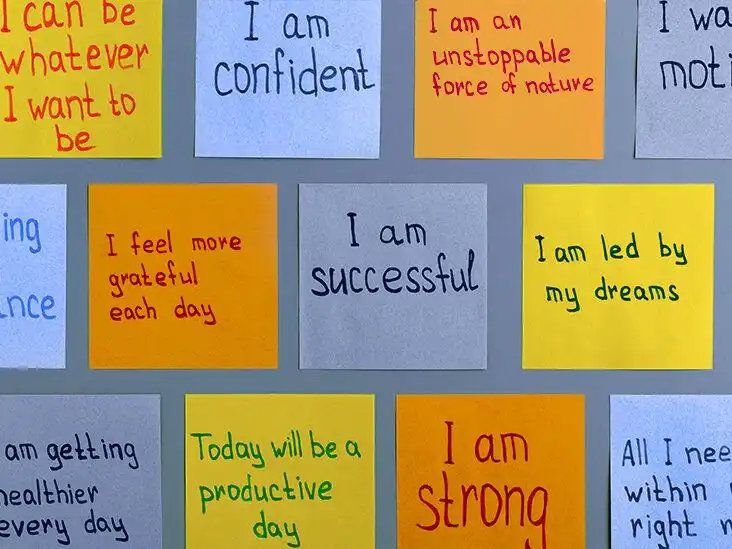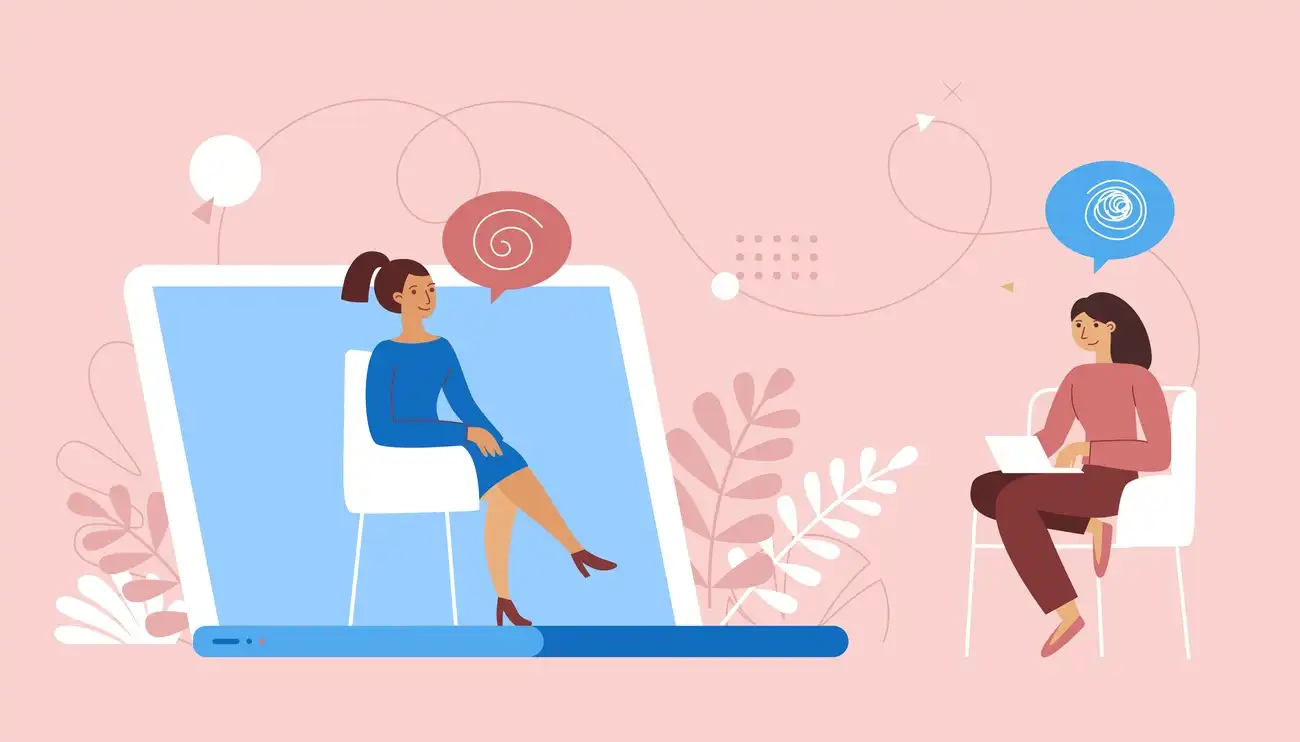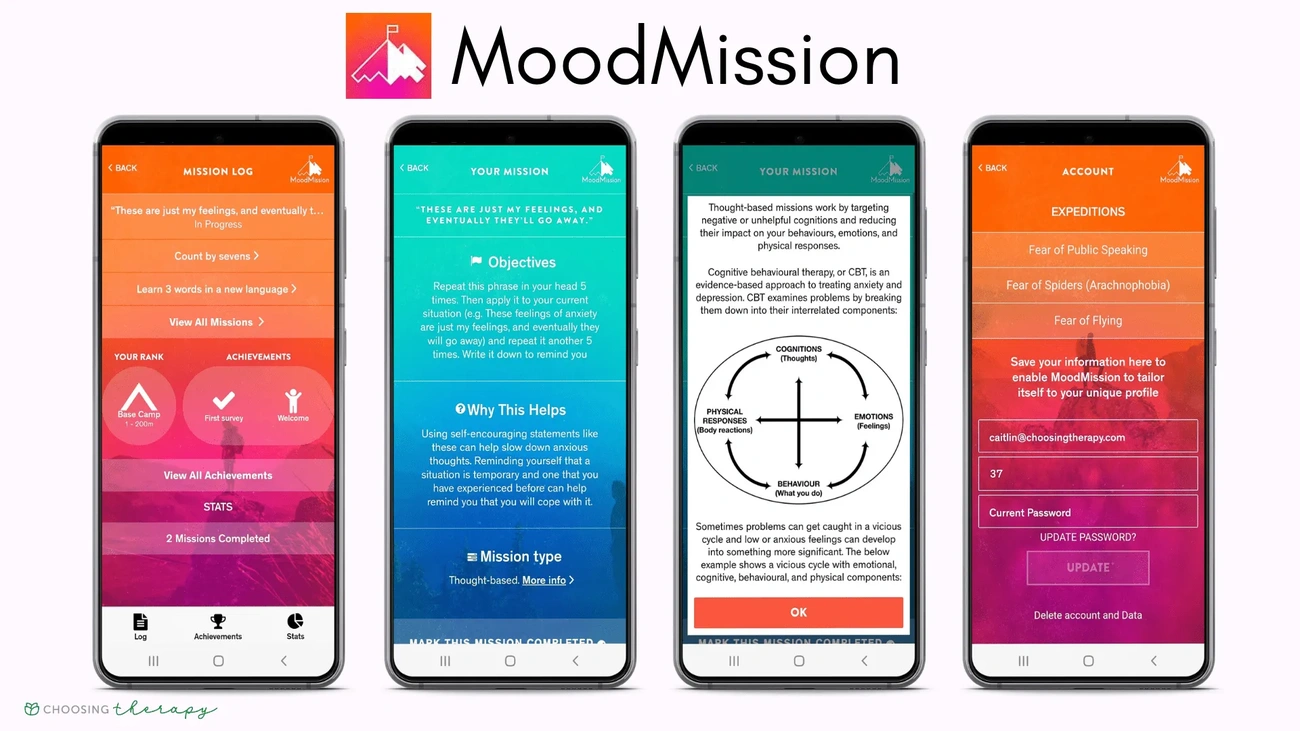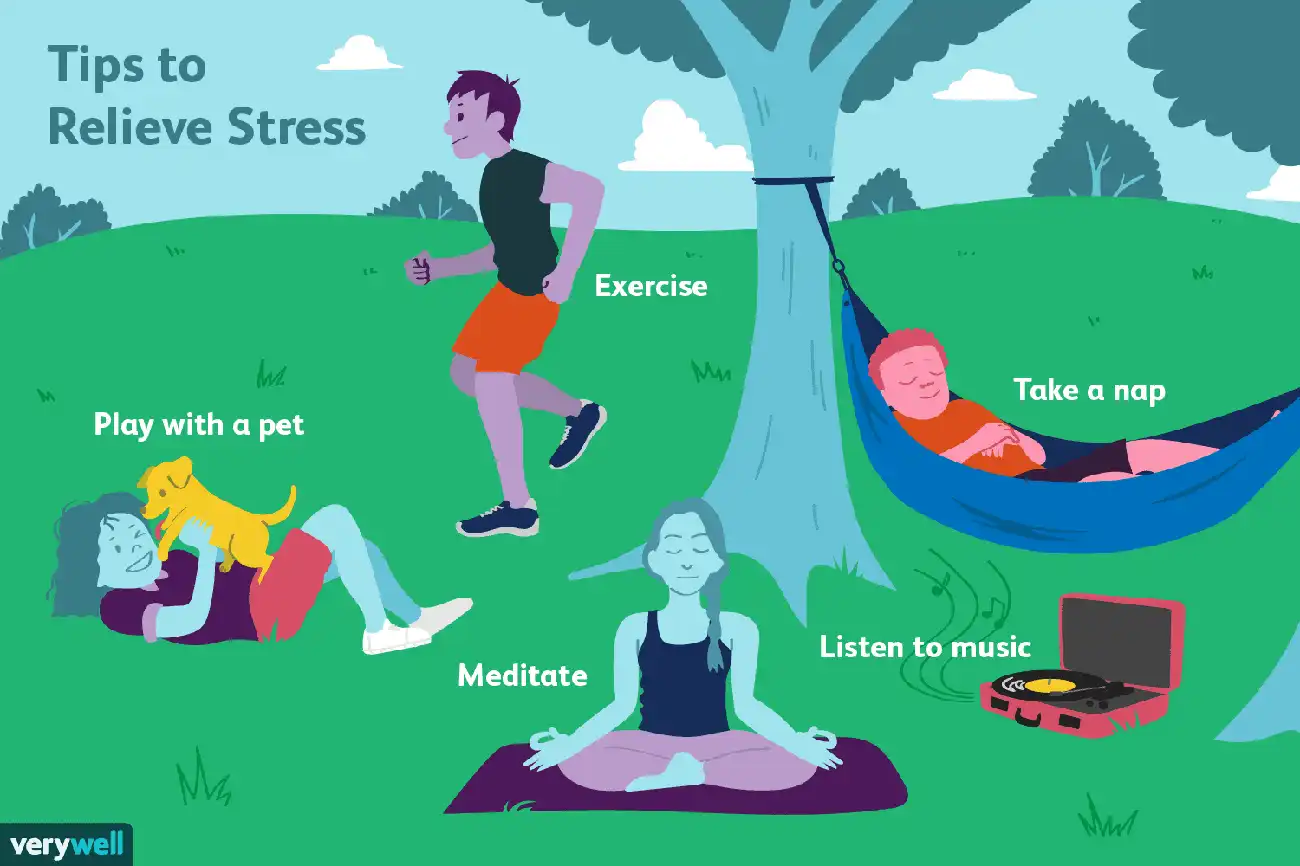In an era where the pace of life continues to accelerate, the significance of effective coping mechanisms for managing stress and anxiety cannot be overstressed. With mental health increasingly coming to the forefront of health discussions, understanding and applying beneficial strategies to navigate the challenges of modern life is crucial. These methods not only offer relief but also promote a healthier mental and emotional state, laying a foundation for resilience against future stressors.
This article delves into several key coping mechanisms that are vital for dealing with stress and anxiety in 2024. From the power of positive self-talk and affirmations to the importance of professional counseling or therapy, it covers a spectrum of approaches that cater to diverse needs and preferences. Additionally, it highlights the role of stress-reducing apps and technology, the significance of setting boundaries for personal well-being, and the transformative effect of gratitude practice on mental health. These strategies, backed by insights and health tips, are designed to empower individuals with the tools they need for managing their mental health effectively.
Positive Self-Talk and Affirmations

Understanding Negative Self-Talk
Negative self-talk often manifests as an inner voice that criticizes or doubts one’s abilities. It can range from realistic self-assessments to exaggerated perceptions of inadequacy or failure. This type of self-dialogue is not only demoralizing but can significantly impact mental health, leading to issues like depression and anxiety [1]. Recognizing these patterns is the first step towards cultivating a more positive mindset.
Benefits of Positive Affirmations
Positive affirmations serve as powerful tools for mental health, helping to replace negative thoughts with constructive and encouraging statements. Regularly practicing these affirmations can strengthen neural pathways, making positive thoughts more automatic and frequent [2]. This process not only boosts mental resilience but also has tangible effects on physical well-being, reducing stress and enhancing overall happiness [2].
Creating and Using Affirmations
To effectively utilize affirmations, one should integrate them into daily routines. Repeating affirmations like “I am capable of learning and improving” can fundamentally alter one’s mindset towards growth and positivity [2]. It is beneficial to consistently use affirmations at specific times, such as in the morning or before sleep, to maximize their impact. While affirmations are not a cure-all, they are a valuable component of a broader mental health strategy that includes therapy, exercise, and other forms of self-care [2].
Gratitude Practice

Science Behind Gratitude and Well-being
Research highlights the profound impact gratitude has on mental health and physical well-being. Engaging in gratitude activates the brain’s reward system, particularly areas like the medial prefrontal cortex, enhancing feelings of joy and contentment. This neural activation fosters a positive feedback loop, increasing individuals’ motivation and overall happiness [3]. Furthermore, gratitude practices have been linked to improved sleep, better stress management, and even enhanced immune function, showcasing a significant reduction in stress and anxiety levels through its influence on the autonomic nervous system [3].
Different Ways to Practice Gratitude
Gratitude can be expressed in numerous simple yet impactful ways. Keeping a gratitude journal, sending thank-you notes, and verbally acknowledging others’ contributions are straightforward methods to cultivate gratitude. Each act of gratitude, whether it’s appreciating a small kindness or acknowledging the beauty of nature, contributes to a greater sense of well-being and fulfillment [4]. Engaging in these practices not only enhances personal happiness but also strengthens relationships and fosters a supportive community environment.
Incorporating Gratitude into Daily Routine
Incorporating gratitude into daily life can be seamlessly achieved with mindful practices. Setting aside time each day to reflect on blessings, whether through writing or mental acknowledgment, helps maintain a grateful mindset. Additionally, starting meetings or personal interactions with expressions of gratitude can set a positive tone, enhancing both personal and professional relationships. These regular practices encourage a shift in focus from negative to positive aspects of life, promoting an overall optimistic outlook and resilience against daily stressors [5].
Professional Counseling or Therapy

When to Seek Professional Help
Professional help is essential when anxiety disrupts daily life, such as affecting work, study, or social activities [6]. It’s recommended to seek therapy if experiencing severe symptoms like difficulty sleeping, changes in appetite, or significant mood fluctuations for two weeks or more [7]. Additionally, if anxiety leads to physical health issues like chronic headaches or digestive problems, it’s crucial to consider professional counseling [6].
Types of Therapy for Stress and Anxiety / how to reduce stress and anxiety
Various therapeutic approaches are effective for managing stress and anxiety. Cognitive Behavioral Therapy (CBT) is widely recognized for its effectiveness, focusing on altering negative thoughts and behaviors [8] [9]. Exposure Therapy, a type of CBT, gradually reduces fear by controlled exposure to anxiety triggers [8]. Dialectical Behavior Therapy (DBT) and Mindfulness-Based Stress Reduction (MBSR) are also notable, helping individuals regulate emotions and focus on the present [6] [8]. Additionally, innovative treatments like Eye Movement Desensitization and Reprocessing (EMDR) and Acceptance and Commitment Therapy (ACT) offer alternative methods to cope with anxiety [8].
Finding the Right Therapist to cope with stress and
Selecting the right therapist is a pivotal step towards effective treatment. It’s advisable to determine personal therapy goals and explore various options such as individual, couples, or online therapy [10]. Utilizing online resources and checking therapist credentials are practical steps in this process [10]. Moreover, platforms like Brightside Health and Online-Therapy.com provide accessible online therapy options, catering to different needs and offering flexibility in therapy methods [11].
Stress-Reducing Apps and Technology

Overview of Mental Health Apps
Mental health apps serve as a supplementary tool to traditional therapy, providing users with resources to manage stress and improve overall emotional health. These apps are designed to teach skills that help reduce stress and enhance emotional well-being, making them a valuable addition to one’s mental health regimen [12].
Features to Look for in Stress-Relief Apps
When selecting a mental health app, users should look for features like a comprehensive meditation library, health tracking, and cognitive behavioral therapy tools. Multimedia capabilities such as text, videos, and audio can also enhance the user experience, making the app more engaging and easier to use [13].
Top-Rated Apps for Stress Management
Sanvello and Headspace are among the top-rated apps for stress management. Sanvello is noted for its extensive meditation options and health tracking features, which are instrumental in aiding stress relief [13]. Headspace offers hundreds of guided meditations and is supported by studies highlighting its effectiveness in reducing stress and improving focus [14]. Additionally, the Calm app is highly regarded for its vast selection of relaxing sounds and meditations, proven to aid in stress reduction and sleep improvement [14].
Setting Boundaries
Importance of Boundaries for Mental Health
Boundaries are essential for protecting one’s emotional and mental health. They are not just barriers but carefully considered standards that safeguard well-being, helping to manage stress levels and reduce the risk of health issues like anxiety and depression [15]. By setting clear boundaries, individuals assert control over their lives, which is crucial for maintaining mental health and fostering healthy relationships [15] [16].
Identifying Areas Needing Boundaries
Recognizing areas where boundaries are needed involves self-awareness and reflection on one’s values, needs, and priorities. It’s important to identify what drains one emotionally, physically, or mentally to effectively establish boundaries. Whether it’s limiting personal interaction or protecting one’s time, understanding these needs is the first step toward setting effective boundaries [16] [17].
Communicating and Enforcing Boundaries
Effective communication is key to setting and maintaining boundaries. Using clear, assertive, and respectful language helps ensure that boundaries are understood and respected by others. It’s also important to be consistent and prepared to enforce boundaries, which might involve restating needs or setting consequences for crossed boundaries. This approach not only protects an individual’s well-being but also enhances mutual respect and understanding in relationships [17] [18].
Conclusion
Through a comprehensive exploration of coping mechanisms, this article has illuminated various effective strategies for managing stress and anxiety, such as the empowering practice of positive self-talk, the therapeutic potential of gratitude, the professional support that therapy offers, the innovative use of stress-reducing technology, and the importance of setting personal boundaries. Each method, rooted in both science and practical application, provides a toolkit for individuals seeking to enhance their mental well-being and resilience in the face of daily stressors.
Reflecting on the insights shared, it’s evident that cultivating a holistic approach to mental health is crucial. Incorporating these coping mechanisms into one’s routine can significantly mitigate the impacts of stress and anxiety, promoting a healthier, more balanced life. As we navigate the complexities of modern living, embracing these strategies can empower us to face challenges with strength and clarity, reinforcing the profound importance of mental health care in achieving overall well-being.
FAQs
Q: What are some expert-recommended strategies for managing stress in 2024?
A: According to Forbes, here are five expert tips for reducing stress in 2024:
- Integrate relaxation into your daily routine to help your body switch from a state of stress to one of relaxation.
- Keep stress temporary and manage its duration effectively.
- Cultivate a habit of gratitude.
- Use positive affirmations or mantras.
- Work on reducing your cortisol levels to lower stress.
Q: What are effective coping strategies for stress and anxiety?
A: Effective coping strategies for stress and anxiety include:
- Taking short breaks throughout the day to relax.
- Planning vacations away from both home and work environments.
- Engaging in enjoyable or fun activities daily.
- Practicing relaxation techniques such as yoga, meditation, prayer, or progressive muscle relaxation.
Q: Why is focusing on mental health important in 2024?
A: Mental health is crucial for maintaining overall health and well-being. Focus on mental health is important because prevention of mental health issues is possible, treatments are effective, and recovery from mental disorders can lead to a fulfilling and productive life.
Q: When is Mental Health Awareness Month in 2024?
A: Mental Health Awareness Month will be observed in May 2024. This month is significant for raising awareness about mental health issues and reducing the stigma associated with them.
References
[1] – https://www.verywellmind.com/negative-self-talk-and-how-it-affects-us-4161304
[2] – https://www.crisistextline.org/blog/2024/01/08/100-positive-affirmations-for-better-self-care/
[3] – https://www.forbes.com/sites/traversmark/2024/05/22/a-psychologist-explains-how-to-hack-your-brains-gratitude-circuit/
[4] – https://www.linkedin.com/pulse/101-powerful-ways-show-gratitude-practice-2024-sinha-qajoc
[5] – https://www.uclahealth.org/news/article/health-benefits-gratitude
[6] – https://www.danabehavioralhealth.org/when-to-seek-professional-help-for-anxiety/
[7] – https://www.nimh.nih.gov/health/topics/caring-for-your-mental-health
[8] – https://www.emotionstherapycalgary.ca/blog-therapy-calgary-emotions-clinic/best-types-of-therapy-for-anxiety
[9] – https://www.verywellmind.com/anxiety-therapy-4692759
[10] – https://comphc.org/finding-the-right-therapist-a-step-by-step-guide/
[11] – https://fortune.com/recommends/health/best-online-therapy-for-anxiety/
[12] – https://www.helpguide.org/handbook/online-therapy/best-mental-health-apps
[13] – https://www.cnet.com/health/mental/best-mental-health-apps-to-start-using-today/
[14] – https://fortune.com/recommends/health/best-mental-health-apps/
[15] – https://earthrebirthers.com/2024/04/08/the-importance-of-setting-boundaries-for-mental-health/
[16] – https://mindfulhealthsolutions.com/no-more-stress-why-boundaries-are-your-new-anxiety-busting-tool/
[17] – https://www.dbsalliance.org/support/young-adults/8-tips-on-setting-boundaries-for-your-mental-health/
[18] – https://www.helpguide.org/articles/relationships-communication/setting-healthy-boundaries-in-relationships.htm






